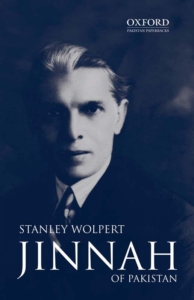 While writing Iqbal: Daur-i-Urooj, I have come across many new facts about our history, and been able to correct some errors of the earlier writers. One of the strangest mistakes I came across happens to be in Jinnah of Pakistan, the 1984 book by the well-reputed American scholar Stanley Wolpert. Here is the questionable passage:
While writing Iqbal: Daur-i-Urooj, I have come across many new facts about our history, and been able to correct some errors of the earlier writers. One of the strangest mistakes I came across happens to be in Jinnah of Pakistan, the 1984 book by the well-reputed American scholar Stanley Wolpert. Here is the questionable passage:
Jinnah adjourned his faction of the Muslim League after a stormy session … On New Year’s Day of 1929 he entered the All-Parties Muslim Conferece presided over by the Aga Khan in [fusion_builder_container hundred_percent=”yes” overflow=”visible”][fusion_builder_row][fusion_builder_column type=”1_1″ background_position=”left top” background_color=”” border_size=”” border_color=”” border_style=”solid” spacing=”yes” background_image=”” background_repeat=”no-repeat” padding=”” margin_top=”0px” margin_bottom=”0px” class=”” id=”” animation_type=”” animation_speed=”0.3″ animation_direction=”left” hide_on_mobile=”no” center_content=”no” min_height=”none”][Delhi] … Shafi was there with his Punjabi cohort when Jinnah walked into the silken pandal pitched on the parade ground of the Red Fort … Jinnah entered late, and sat alone. He was as yet undecided … Was this really his home? Were these truly his people? [p.104]
We can see how meticulously the author has paid attention to small details such as the late arrival of Jinnah, his sitting alone, and even the thoughts passing through his mind. Quite impressive, except for the fact that Jinnah never went to this conference!
Jinnah’s faction of the Muslim League had passed a resolution criticizing the convening of the conference. It can be seen in the published records of the League as well as contemporary periodicals and papers. The session of the League in which this resolution was passed is described by Wolpert as ‘stormy’, giving us the false impression that he is familiar with the procedings.
The decision of the League and Jinnah’s personal telegram were conveyed to the Conference, and can be found in its official report. The telegram from the League says that it ‘regrets it cannot accept invitation … as League is strongly of opinion it would be disastrous to Muslim interests…’ Jinnah’s telegram says, ‘League decision binding…’
Most of the speakers at the conference discussed Jinnah’s refusal to attend, so it became one of the most talked about matters on that occasion.
More detailed passages from these reports, their historical context and complete references can be seen in Chapter 7 of Iqbal: Daur-i-Urooj.
The passage in Wolpert’s book is not a simple mistake. It is not that as if the author consulted some source material that has turned out to be incorrect. He has actually fabricated a whole event without any supporting evidence, false or true, whatsoever.
The only source mentioned by him in this connection is the autobiography of His Highness Aga Khan III. This is cited in the next paragraph, where Aga Khan is quoted as to have written that the conference ‘marked the return … of Mr. M. A. Jinnah to agreement with his fellow Muslims.’ Aga Khan was obviously referring to the change that came in Jinnah’s position some time after the conference but it seems that Wolpert misinterpreted the word ‘return’, and his wild imagination did the rest.
Seriously, though, what should we call it?
[/fusion_builder_column][/fusion_builder_row][/fusion_builder_container]

outrageous!
To dramatise the historical events the western writers can go to any extent in fabricating facts and make their books sell. Such are the market driven writings in which the writers take liberties like the commercial film makers who are notorious in doing so while adopting classics. Gullible readers take such writers as historians. Media publicity helps in creating hype for such books.
Mistake, or Policy? I am not a historian, but find in my reading and conversations that there is little international sympathy for Jinnah’s cause in general, and never wanting to show him as a leader of the majority of Muslim Indians. That is how history is construed by most.
Good find Khurram!, I remember when this book came out, got a lot of attention here in US as well